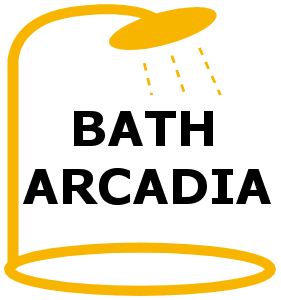Dealing with a toilet blockage is a challenging experience. In such a situation, homeowners often turn to plumb services or store-bought drain cleaners to fix the issue.
However, with household cleaning products like hydrogen peroxide becoming increasingly popular, many wonders if this chemical can be used as an eco-friendly alternative for unclogging a toilet.
This article explores whether hydrogen peroxide can effectively unclog a toilet and the safety precautions one should take before attempting this DIY solution.
What is hydrogen peroxide?
Hydrogen peroxide is a chemical compound commonly used as a disinfectant and bleaching agent. It is a colorless and odorless liquid that contains hydrogen and oxygen molecules.
Hydrogen peroxide is available in different concentrations, with the most commonly used concentration being 3%.
Understanding the Chemical Reaction
Hydrogen peroxide is a natural cleaner that has proven effective in household cleaning. It is a colorless and odorless liquid made up of water and oxygen.
When it comes into contact with organic matter, such as bacteria and viruses, the oxygen molecules in the hydrogen peroxide release and create a chemical reaction that breaks down the organic matter.
Can Hydrogen Peroxide Unclog a Toilet?
The short answer is yes, hydrogen peroxide can unclog a toilet, but it may not be effective in all cases. Hydrogen peroxide works by breaking down the organic matter that is causing the clog.
However, the concentration of hydrogen peroxide needed to dissolve the clog may be too high and can damage the toilet bowl, pipes, and plumbing system.
You must use a low chemical concentration if you want to use hydrogen peroxide to unclog your toilet. A concentration of 3% is recommended as it is safe for use and will not damage the toilet bowl or pipes.
You can pour a cup of hydrogen peroxide into the toilet bowl and let it sit for about 30 minutes. After 30 minutes, you can try flushing the toilet to see if the clog has cleared.
To clear minor blockages in a toilet bowl, pour a mixture of hot water and hydrogen peroxide into it and let it sit for a few minutes. Then, flush the toilet to check if the blockage has cleared.
For more stubborn blockages, a mixture of hydrogen peroxide and baking soda can help to clear the drain effectively. The baking soda and hydrogen peroxide mix will create a fizzing effect, which helps to loosen the clog.
After a few minutes, hot water can be poured into the bowl to help flush away the loosened debris.
Pros and Cons
Pros:
Using hydrogen peroxide to unclog a toilet has several advantages. It is a natural and eco-friendly option that does not harm the plumbing system. It is also a cost-effective solution that can save homeowners money.
Hydrogen peroxide is readily available at most drugstores and supermarkets, making it a convenient option for emergencies.
Cons:
Despite its advantages, using hydrogen peroxide to unclog a toilet also has disadvantages. It may not be as effective as chemical drain cleaners, especially for severe blockages. It can also take longer to work and may require repeated applications.
Furthermore, hydrogen peroxide can cause discoloration on specific surfaces and fabrics.
Utility of Hydrogen peroxide
It’s worth noting that hydrogen peroxide can help clear minor blockages in a toilet, sinks, and showers. It is a versatile solution that effectively dissolves organic matter that causes blockages.
It is also a safer alternative to chemical drain cleaners, making it an ideal option for households with children and pets.
Benefits of Hydrogen peroxide
Using hydrogen peroxide to unclog a toilet can provide several benefits. It is a natural and safe solution that does not harm the environment.
It is also a cost-effective option to save homeowners money on plumbing services. It can help maintain the plumbing system by preventing blockages from forming.
Importance
Maintaining a clean and functional bathroom is crucial for every household. Using hydrogen peroxide to unclog a toilet can ensure that the plumbing system works appropriately, preventing costly repairs and replacements.
Safety Precautions
While hydrogen peroxide is an eco-friendly and natural cleaner, it is still essential to take safety precautions to unclog a toilet. It is recommended that protective gloves and eyewear are worn when handling the solution to avoid skin irritation and accidental splashes.
Additionally, the solution should not mix with other chemicals, which can produce harmful fumes.
Alternatives for Clogged Sinks and Showers
Hydrogen peroxide can also be used to unclog sinks and showers, as the same chemical reaction that breaks down organic matter can help to clear the drain. Additionally, a plunger can also be used to help loosen the blockage.
Conclusion
Hydrogen peroxide can be an effective and eco-friendly alternative to unclogging a toilet. However, it is essential to remember to take the necessary safety precautions before attempting this DIY solution.
With proper bathroom maintenance and using natural cleaners like hydrogen peroxide, homeowners can save money on plumbing services and reduce their carbon footprint.

